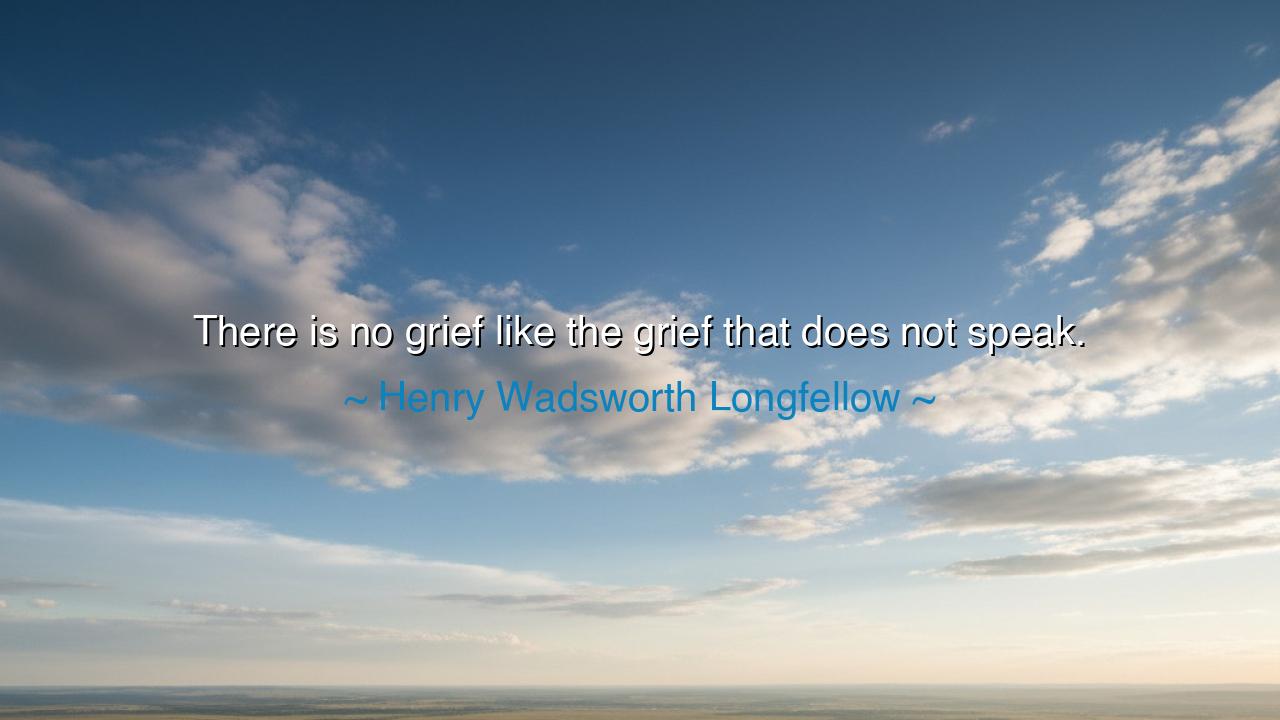
There is no grief like the grief that does not speak.






Henry Wadsworth Longfellow, poet of sorrow and solace, once wrote: “There is no grief like the grief that does not speak.” In this brief but thunderous line, he unveils the nature of silent suffering — that unspoken anguish is heavier than the grief poured out in tears, heavier than the lament shouted to the skies. For when the heart hides its wound, it festers; when the soul swallows its cry, it grows poisoned. Longfellow teaches us that the deepest pain is not the pain that wails, but the pain that is trapped in silence.
The ancients themselves gave voice to this truth. In the tragedies of Greece, the chorus cried out so that the community might bear the weight of sorrow together. Public mourning, ritual weeping, the tearing of garments — these were not merely customs, but acts of survival. They knew that grief needed expression, or else it would destroy the mourner from within. Longfellow, writing centuries later, echoes the same wisdom: the unspoken wound is the deadliest, for it consumes the heart in isolation.
History offers us examples both tragic and luminous. Consider the life of Abraham Lincoln. He was a man of immense public strength, yet privately, he bore heavy sorrows: the loss of children, the burden of war, the weight of division. When he spoke of grief, whether in letters or in speeches, it softened his heart and deepened his compassion. But in those times when he closed himself off, those near him testified that his melancholy nearly crushed him. His story shows us that grief, when given words, becomes a bridge to others; when unspoken, it becomes a prison.
Longfellow himself knew this pain intimately. His first wife, Mary, died suddenly, and years later his beloved Fanny perished in a fire before his eyes. He carried these wounds throughout his life, and his poetry became his way of speaking the unspeakable. Without this outlet, his sorrow might have consumed him. But by shaping grief into words, he gave healing not only to himself, but to countless readers who found their own pain echoed in his verse. His quote is not theoretical, but born of lived anguish.
The wisdom here is plain: silence deepens sorrow. To keep grief hidden is to let it weigh upon the heart without relief. Words, tears, prayers, songs, even the simplest confession to a friend — these are the vessels that carry grief out of the heart. Without them, grief becomes a stone pressed eternally upon the chest. With them, grief becomes a current, still heavy, but flowing, moving, capable of transformation.
The lesson for us is clear. When grief visits you — and it will — do not hold it in silence. Speak it, even if the words are broken. Weep, even if the tears seem endless. Share your mourning with another soul, or pour it into writing, or release it in prayer. And when you see another bound in silent grief, do not leave them alone; draw forth their words with patience and gentleness, for by helping them speak, you lighten their burden.
So remember, O children of the future: “There is no grief like the grief that does not speak.” Do not let sorrow make you mute. Give it voice, so that it may be borne, so that others may walk beside you. For grief unspoken devours, but grief expressed can heal. And though sorrow may never fully depart, when it is shared, it becomes not a solitary darkness, but a candle that flickers in the night, lighting the path toward endurance and hope.






AAdministratorAdministrator
Welcome, honored guests. Please leave a comment, we will respond soon